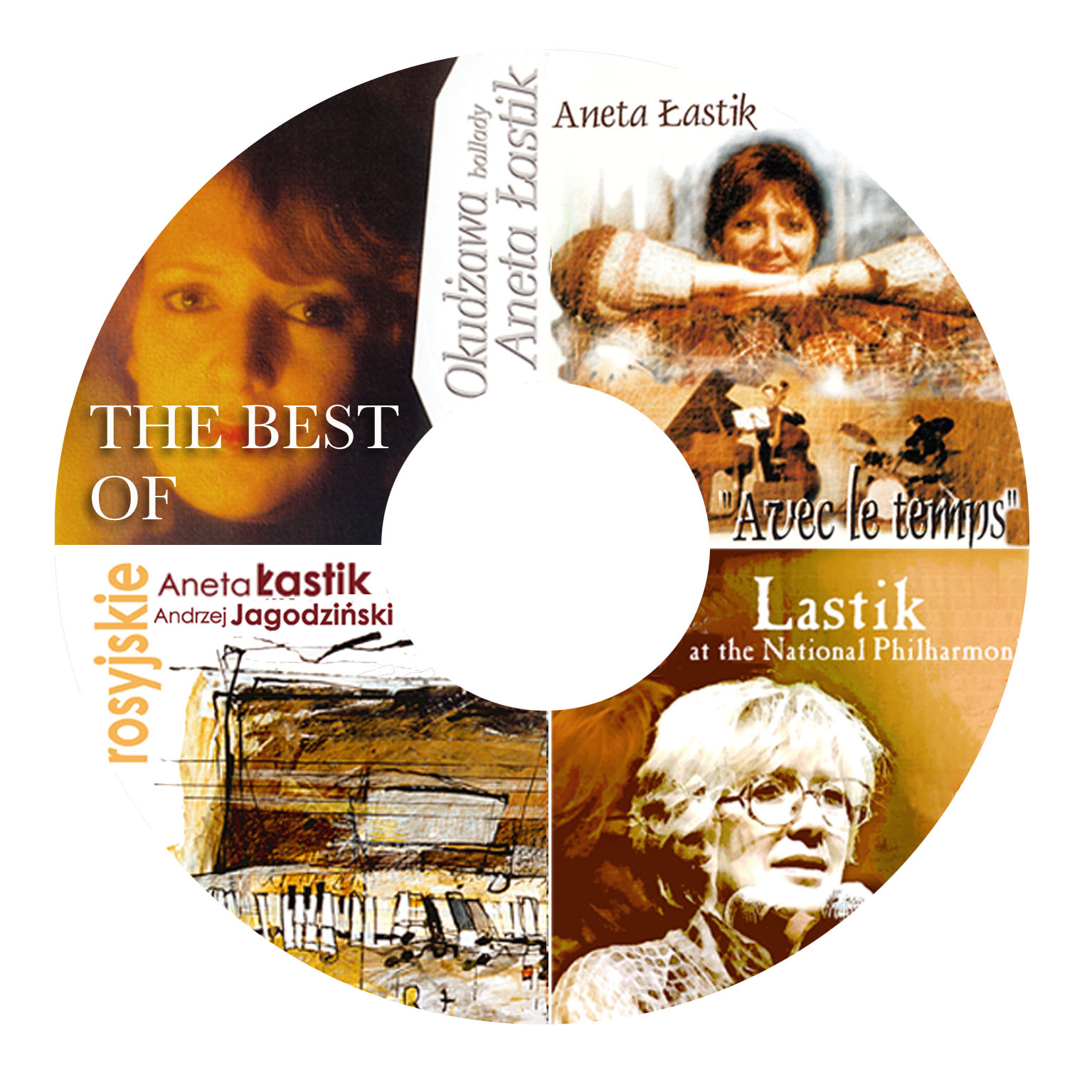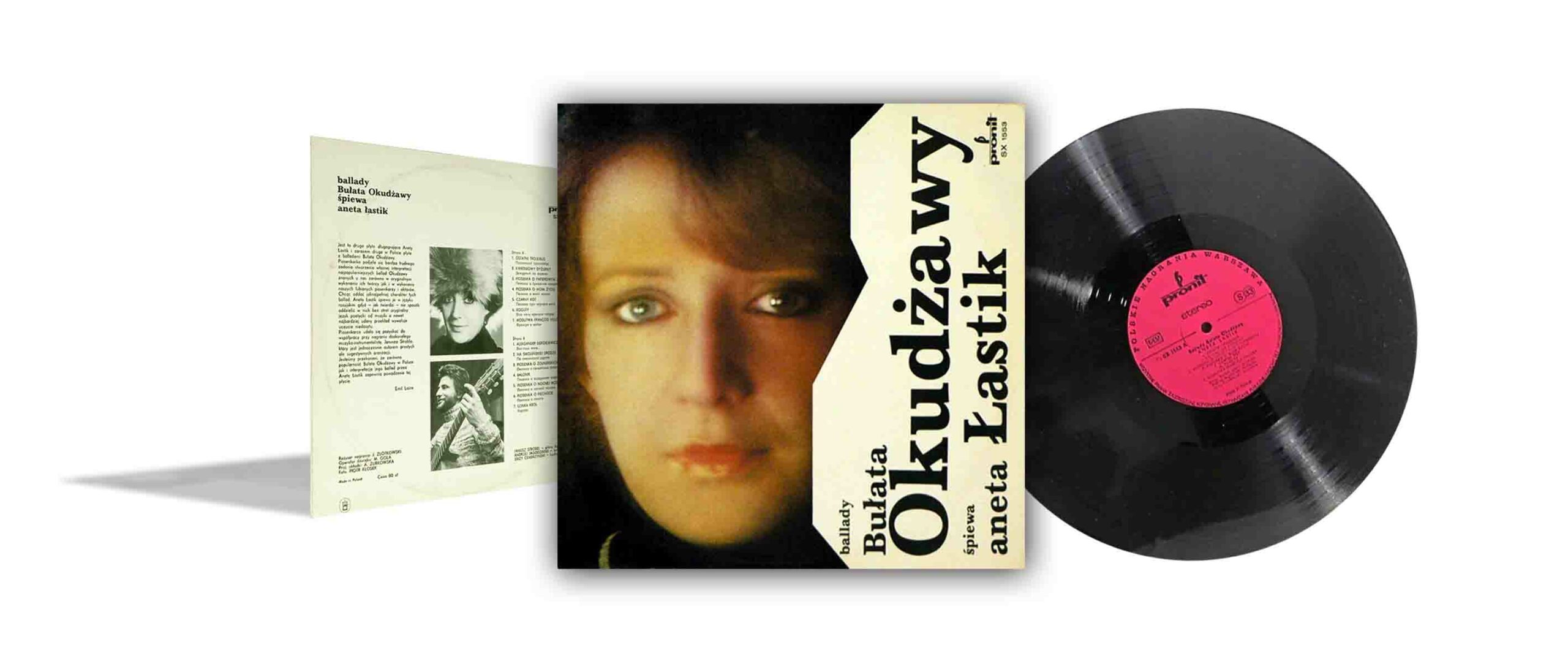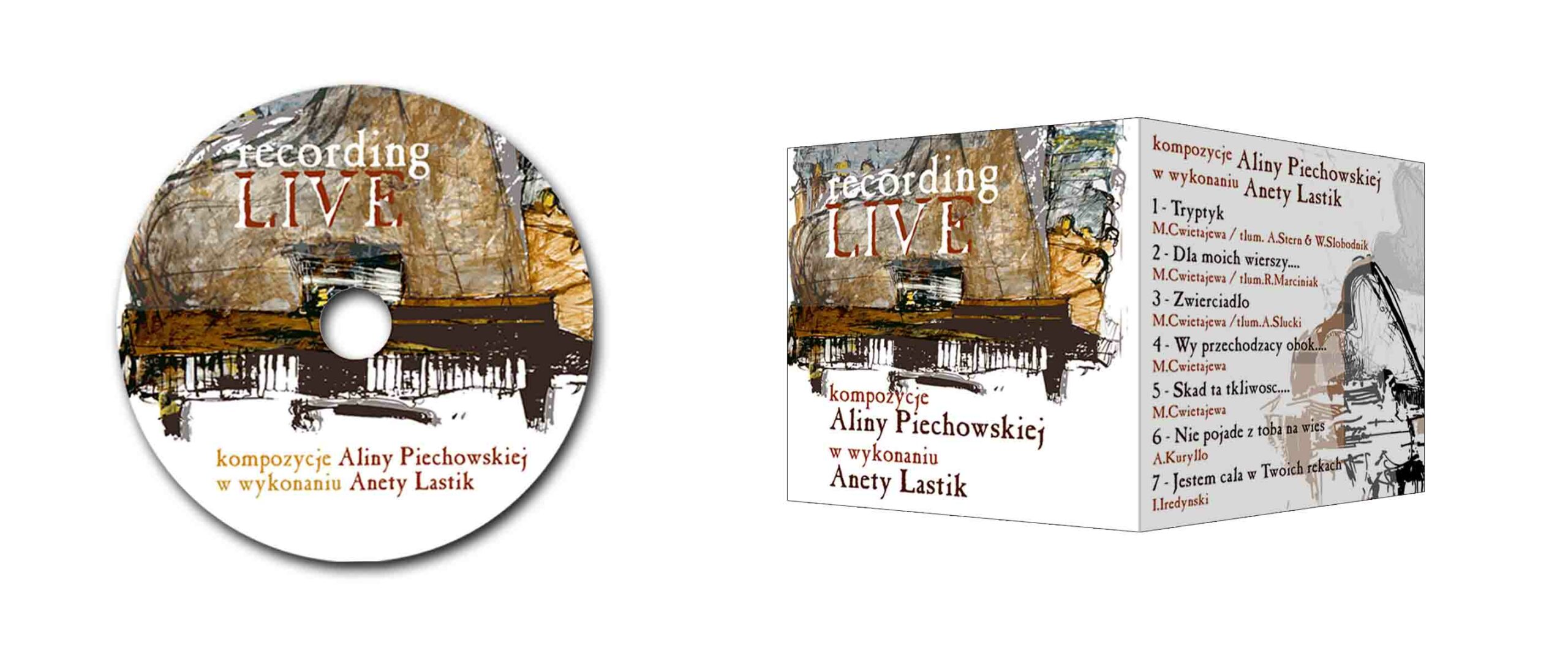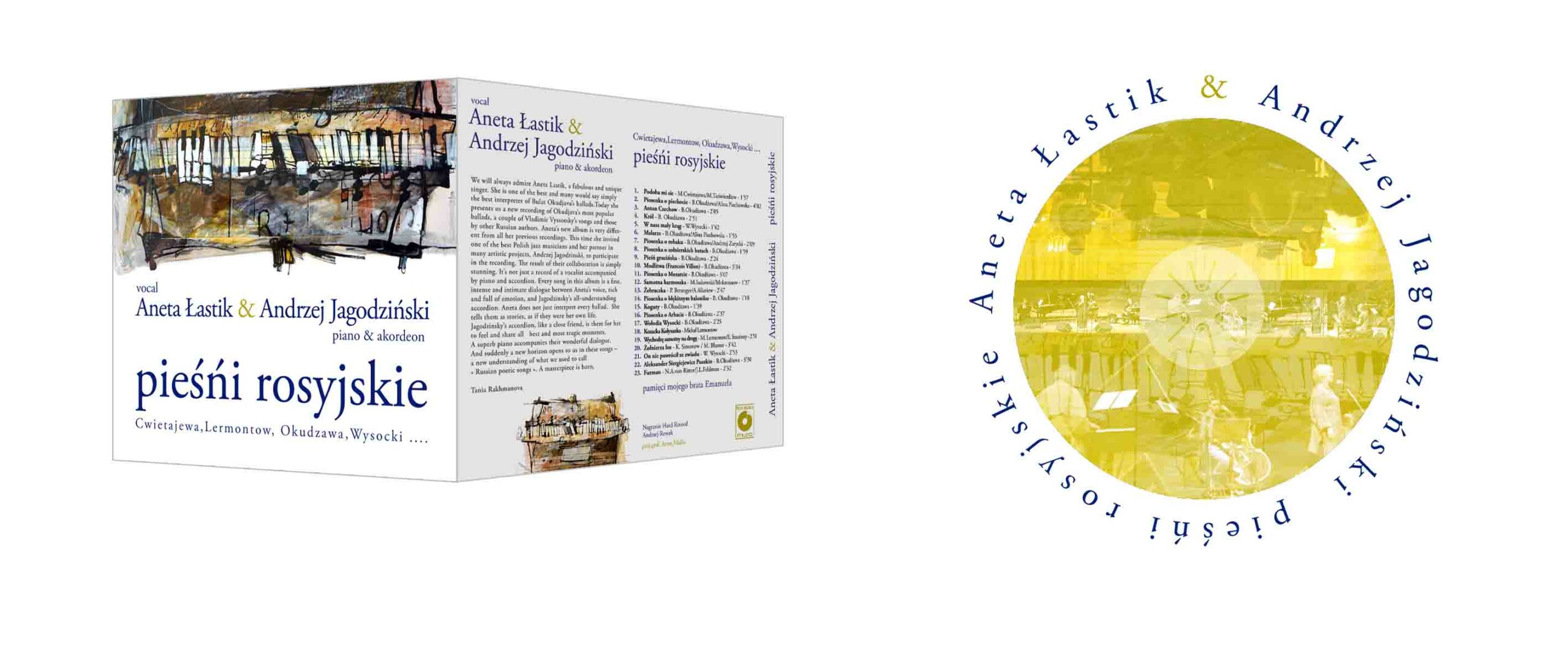muzyka
Płyty
Znana w wielu krajach z niepowtarzalnych interpretacji ballad Bułata Okudżawy
pieśni & songs
A ja ci cały świat wyśpiewam
Dream a Little Dream of Me
The Ballad of Reading Gaol
Album The best of
Album The best of
Płyty & songs

Aneta Łastik, wspaniała, wyjątkowa piosenkarka, znana jako jedna z najlepszych wykonawczyń ballad Bułata Okudżawy, a dla wielu z nas, po prostu – najlepsza. Jej najnowsza płyta z piosenkami Okudżawy, Wysockiego i kilku innych autorów rosyjskich, utworami wybranymi ze smakiem i sercem – to dla słuchacza prezent szczególnie cenny.Jakże inna jest przecież ta płyta od poprzednich. W jej nagraniu towarzyszył Anecie jeden z niekwestionowanych królów polskiego jazzu, jej przyjaciel i współtwórca wielu innych zaśpiewanych przez nią utworów – Andrzej Jagodziński. Rezultat ich pracy jest tym razem nadzwyczajny. Płyta ta, jest czymś o wiele więcej, aniżeli tylko zwykłym nagraniem głosu, któremu akompaniuje akordeon z fortepianem – uderza w niej bowiem wyrazisty, pełen skupienia i głębi dialog, jaki toczy się między muzykiem i artystką, więcej – między dwoma przyjaciółmi, by nie rzec wspólnikami. Z jednej strony – piękny, wibrujący uczuciami głos Anety, który opowiada nam różne ludzkie historie, często jakby przez nią sama przeżyte, jakby opowiedziane z chęci podzielenia się czymś intymnym. I z drugiej – akordeon, partner jakże uważny i czuły, raz smutny, to znów radosny, reagujący na każdy odcień Anety głosu i każdą cząstkę śpiewanej przez nią piosenki. Dźwięk fortepianu ilustruje, często pogłębia, czy wręcz dramatyzuje ten dialog. I nagle, w tych znanych, tyle już razy śpiewanych piosenkach i balladach, otwiera się nowa głębia, niczym jakiś nowy, nieoczekiwany świat, jakże już daleki od tego, co zwykliśmy określać mianem tradycyjnych « rosyjskich pieśni ». Tak oto wykonanie utworu staje się jego tworzeniem.
Tania Rakhmanova (tł. Mariusz Tukaj)
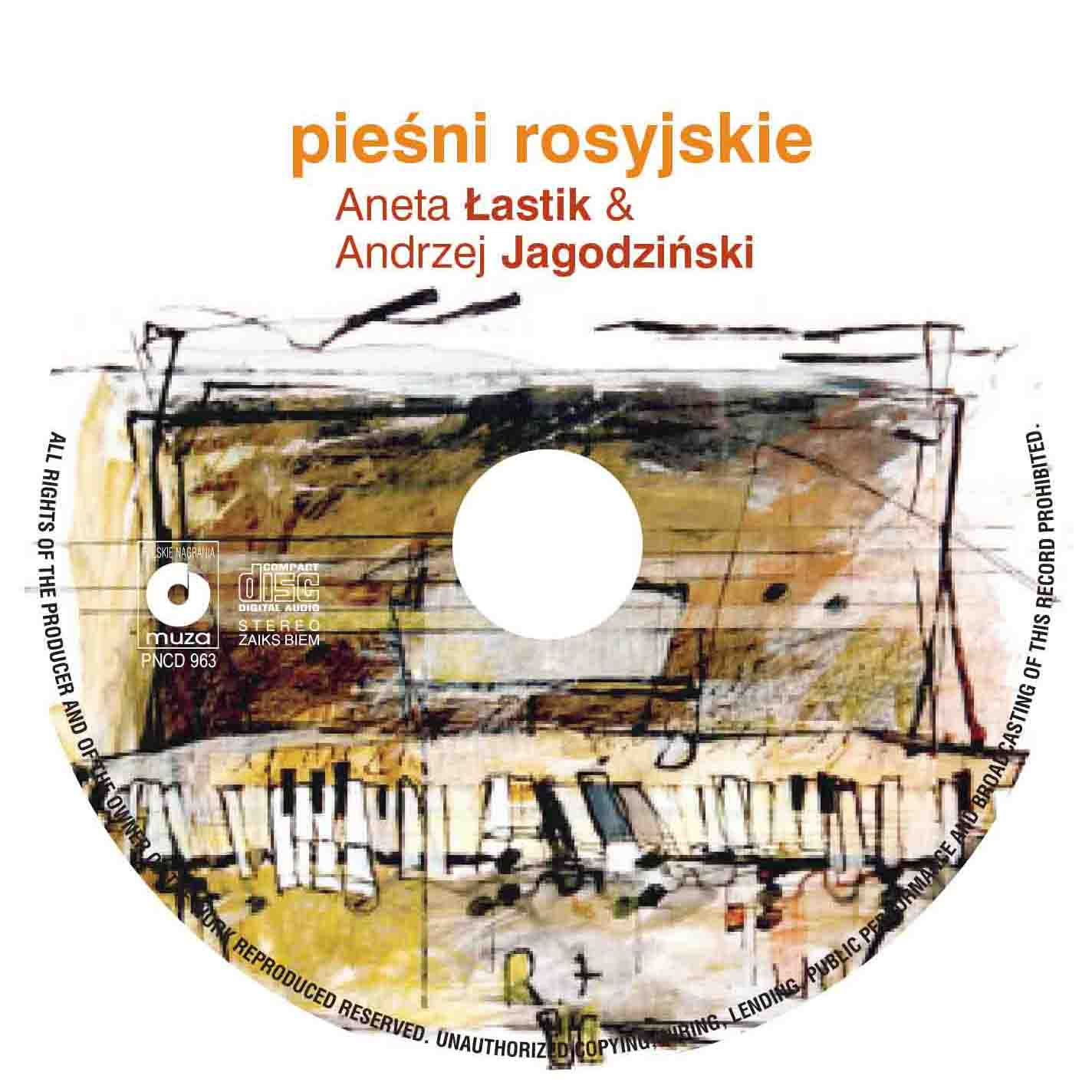
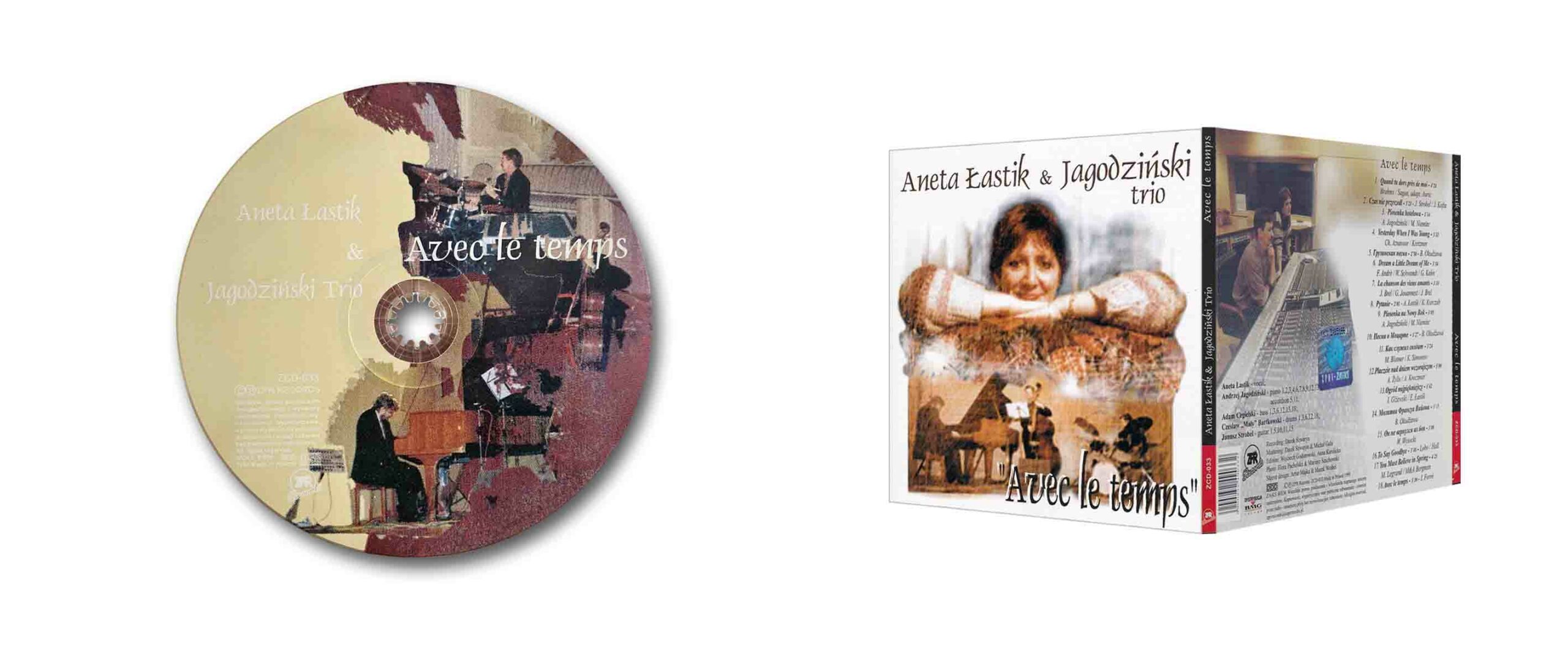
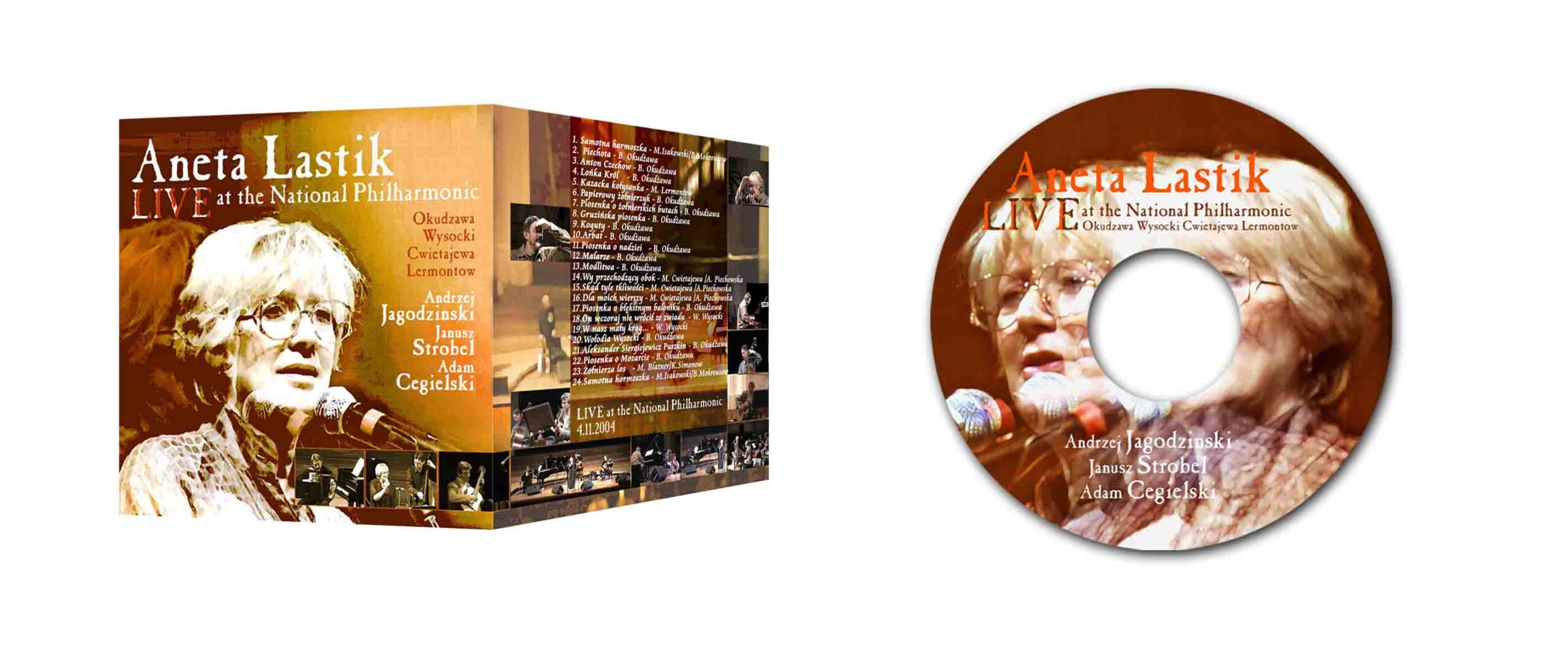
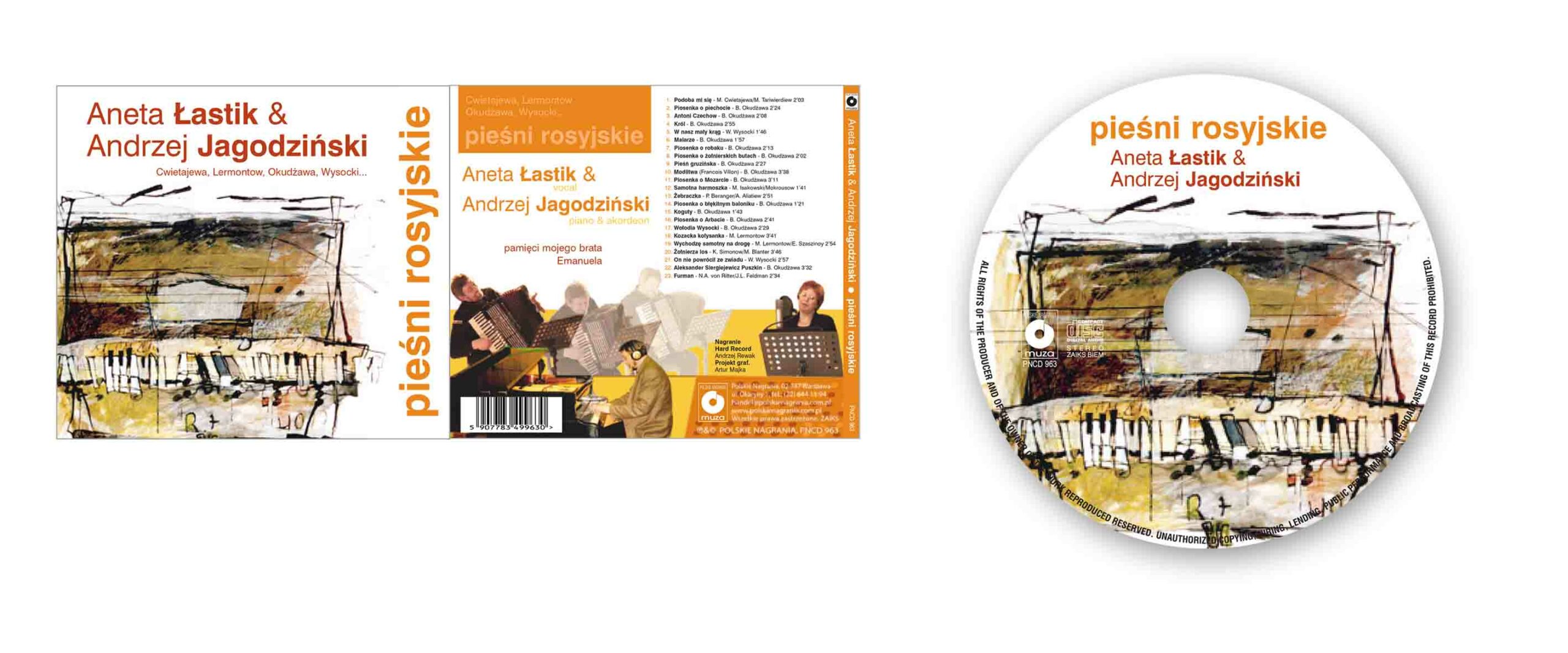
Whole scale tuned heart
Aneta Lastik sings not only Okudjava
A positive beginning: the CD of Anetal Lastik Russian songs, about which you can read below, is not a posthumous work. This news is particularly directed to those, who some time ago, accidentally entered a Russian-American website russiandvd.com, which announced the artist’s suicide in Paris. She is alive, she lives in Paris – that’s true, although from the marketing point of view that is not a good move, taking into account that since March, when the CD was issued, no promotion was organized.A wsjo taki żal [oh, how I regret] – let me quote Bulat Okudjava’s song, because the rekord – Publisher by Polskie Nagrania – deserves both promotion and warm welcome, particularly due to its beautifully performed repertoire. The record, sung in Russian, contains the most famous ballads of Bulat Okudjava (including Song of infantry, Georgian song, The prayer, The song of Arbat, The song of the trampling jackboots, The blue balloon, Mozart, Aleksander Siergiejevich Pushkin) and poems by Vysotsky, Lermontov, Cvietajeva and a few other Russian poets. The singer is accompanied by Andrzej Jagodziński, playing piano and accordion. The ace of Polish jazz, sophisticated interpreter of Chopin has supported Aneta Lastik as a friend and a musician for many years – one of their projects is a record published in 1999 – Avec le temps.To avoid artistic arrogance while performing Okudjava’s ballads in original, one needs to be Aneta Lastik – with her biography and talent. To achieve not only performance in Russian language, but also to sing Russian soul, you need to have such soul, and she does. Aneta was born in Lodz, as a child of a Jew and a Fin from Karelli – areas occupied by the Union of Soviet Socialist Republics. Russian was the first language she heard from her mother. Cossak’s lullaby by Lermontov, sung by her mother to her elder brother- tragically died future poet Emil Laine – was the melody best remembered from her childhood. This is why Lastik feels the language so well. This is why while touring in the Soviet Union, she would hear people claiming that she hears and catches nuances that are not understandable even for a contemporary Russian. This is why her record with Okudjava’s ballads, published 30 years ago, guaranteed her the position of the singer whose interpretation of the bard’s songs are simply the best. This is why the last record confirms such a fact.Nikagda da kańca nie prajti tiebia [I will never reach your end – sang Okudjava abort Arbata, the street of his childhood, abort his religion. And such his ballads are: simple, with regular stanzas „songs about” – with one deep and hard sentence, which you will never cross, reach its end. As this one from The painters, where painter’s brush becomes the final judge. Or the sentence from The cocks, where crowing does not invite dawn, just like forced touch does not call love. And finally as the sentence from The insect, the sentence impossible to cross and reach, where shadows of the insects couple hang over the door so beautiful and wise as they were god, and so sad as life on Earth. And that is how Lastik sings. Simply, with natural voice, with a discreet accompaniment of the piano and co-singing accordion. And wisely, because her emphasis of the meaning and sense is not aggressive, because she walks, but not crosses.Mutual fate, Poles, connected us long ago- Bulat sang in his Farewell Poland. Poland, who loved him, where he was appreciated and famous much earlier than in his own country, where his Prayer was sung in churches. But mutual fate is not all. There is joined tuning. For my friends I will tune my heart for love- he sang in his famous Georgian song. Tuning then – on the whole tone scale. And though later love gets stupider and sadder – this first moment is the whole tone scale. I like this honesty of hearts. I guess Aneta Lastik as well, because she tunes pretty well.
Monika Partyk / Dziennik Polski 2006 Transl. Anna Trybuch
Hire Me
Contact for Bookings
Aby posłuchać Anety Łastik wielu pokonuje tysiące kilometrów. Tak było w Moskwie, dokąd na jej koncert przyjechali ludzie aż a Syberii. Tak było w Tbilisi, czy w Warszawie, skąd Aneta Łastik pochodzi; tak bywa w Paryżu, gdzie artystka mieszka. Dlaczego? Dlatego, że to, co dają koncerty Anety Łastik to o wiele więcej, niż – jak to często bywa – zsumowanie mistrzostwa głosu, słowa i muzyki. Śpiewać tak, by do każdego słuchacza dotrzeć i każdego poruszyć może tylko ten kto słowo miłość łączy ze słowem człowiek. I kto znakomitą interpretacją oddaje nasze emocje w jasyr prawdziwej Sztuce. Głos Anety Łastik to głos o brzmieniu niepowtarzalnym, rozpoznawalnym od pierwszego dźwięku. Głos mistrzowsko towarzyszący słowu. Od lat Aneta Łastik wierna jest poezji wielkiego barda Rosji: Bułata Okudżawy, który nie przestaje nas poruszać – do głębi.W jej wykonaniu staje się on – podobnie jak Wysocki – bliższy, bardziej zrozumiały z każdym słowem, z każdym taktem. Tak jest i z wierszami Mariny Cwietajewej, od niedawna goszczącej w repertuarze piesniarki. Unikalnemu głosowi Anety Łastik oraz wspaniałym wierszom rosyjskich poetów, niezwykle prostą i głęboką za razem oprawę muzyczną dał, współpracujący z nią od wielu lat, wybitny muzyk jazzowy Andrzej Jagodziński, jednocześnie akompaniując jej na fortepianie i akordeonie, którego dźwięki zapadają głęboko w sercu.Towarzyszą mu: Janusz Strobel na gitarze i Adam Cegielski na kontrabasie.Poezje Mariny Cwietajewej znakomicie ożywiła muzyką, znana kompozytorka Alina Piechowska.Płyta jest zapisem koncertu, który odbył się, przy wypełnionej po brzegi Sali Koncertowej Filharmonii Narodowej w Warszawie, 4 listopada 2004 roku.
Krystyna Kurczab-Redlich
